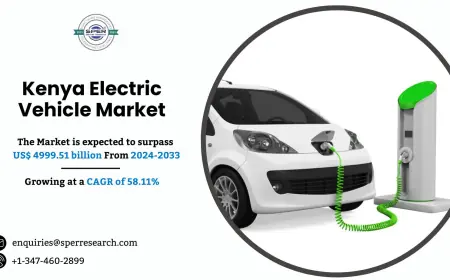The Hidden Costs Of Ignoring Performance Marketing For Ecommerce Growth
See how performance marketing for ecommerce helps reduce costs, guide spend, improve targeting, and accelerate growth with data-backed decisions.

One of the biggest miscalculations ecommerce businesses make is believing that not investing in performance marketing means saving money. But the truth is that inaction doesn't neutralize cost. Instead, it simply redistributes it to less visible areas. In increasingly saturated online markets, where brands compete, having no performance marketing for ecommerce usually translates to spending on other acquisition channels going to waste.
Consider organic traffic efforts, for instance. Though critical, SEO generally takes a long time to show lead. Without a performance layer strategically partnered with it, months might elapse without a transactional outcome. Paid acquisition, in contrast, offers short-term feedback loops that help allocate budget efficiently across high-converting channels. When brands ignore this lever, they may end up misallocating the budget into content or partnerships that deliver impressions but few actual conversions.
More importantly, the absence of attribution data, something performance marketing for ecommerce provides in depth. In other words, founders and marketing team leads act with limited visibility. Consequently, they produce reactive rather than proactive optimizations.
Missed Opportunities To Scale With Precision
Good marketing isn't simply transactional. It's about figuring out what really works. Without granular metrics like cost-per-click (CPC), return on ad spend (ROAS), and customer acquisition cost (CAC), ecommerce teams have limited visibility. These metrics aren't superficial; they're fundamental, informing channel strategies that are delineated by informed decision-making.
Imagine having two sets of customers convert with two varying ad creatives on Meta. Without knowing which of these two is performing better, the budget can be split down the middle even if one of these creatives is underperforming. This leads to wasted spend and missed potential from not scaling what's proven to convert.
Scalable ecommerce marketing depends on continuous learning. You test, analyze, and refine. Without the right data loops, businesses end up making decisions without feedback. That's not a strategy. That's guesswork.
Performance Marketing For Ecommerce & Inventory Risks
It also informs downstream decisions like inventory planning. A perfectly tuned campaign can forecast demand bulges based on what an audience will do, a time of year, or a location. When brand owners discount this level of insight, they often rely solely on historical sales data or guesswork.
So, performance marketing for ecommerce poses two risks: overstocking and understocking. Overstocking ties up money in a stock that can't sell. Understocking loses sales revenue and lets down customers. Neither of these is good for a scalable ecommerce brand.
Further, the majority of ecommerce websites have real-time ad tools with inventory-driven responses on a product level. The systems will not function at maximum capability if you aren't directly executing performance marketing. You get ongoing ad expenditures even if core products aren't in stock, which amplifies wastefulness.
Higher Customer Acquisition Costs In The Long Run
Ironically, the longer a brand waits to embrace performance marketing for ecommerce, the more expensive it becomes. Platforms like Google Ads and Meta operate on bidding models. As more competitors optimize their campaigns, CPCs rise. Early adopters often enjoy lower costs and a learning curve advantage. Late entrants face steeper learning curves and higher costs.
A brand that ignores paid media for a year doesn't just miss that year's revenue. It also starts from zero when it finally begins, while competitors are operating from a place of experience, historical data, and proven audience segments. This cost gap compounds over time.
In the long run, ecommerce advertising is about reducing CAC through insights gathered across dozens of iterative campaigns. Brands that delay structured performance efforts miss out on this compounding advantage.
Brand Visibility Becomes Dependent On Algorithms
It's tempting to rely solely on organic channels, such as SEO and social media virality, especially for lean teams. But these are fundamentally unstable sources of traffic. One algorithm update can tank organic reach or search rankings overnight.
Performance marketing acts as a control mechanism. It gives brands the power to increase visibility predictably without waiting for Google or Instagram to favor their content. More importantly, it allows ecommerce marketers to decide who sees their messaging based on intent, behavior, and historical engagement.
Without this control, brands may find themselves invisible just when they need visibility the most, such as during a product launch or seasonal promotion. It's not enough to create a campaign, as you need to ensure the right people actually see it. That's what performance marketing for ecommerce enables.
Poor Attribution Equals Bad Strategic Decisions
Performance marketing doesn't operate in isolation. It strengthens your overall ecommerce marketing ecosystem by providing clearer attribution. You can trace how a customer moved from awareness to purchase across channels and devices. This level of insight is not available through organic efforts alone.
Without proper attribution, brands risk overinvesting in channels that merely assist conversions and underinvesting in those that drive them. For example, email might appear to be a top driver, but in reality, paid ads may have played a major role in initial discovery. By ignoring performance marketing, brands skew their own performance data, leading to flawed decisions that cascade throughout the funnel.
Inefficient Creative Development
Performance-driven advertising informs not only where you spend but also how you communicate. Data from platforms like Meta, Google, and TikTok helps ecommerce teams understand which messages, visuals, and offers resonate best.
Without this input, creative teams operate in isolation, producing messaging based on assumptions rather than insight. The result? Generic ecommerce advertising that fails to convert.
Worse still, you can't easily test and iterate. Creative assets become fixed investments rather than flexible tools that adapt based on data. This not only inflates the cost per campaign but also slows down marketing agility. Ignoring structured paid efforts strips away this adaptability.
Underutilization Of First-Party Data
With tightening data privacy laws and restrictions on third-party cookies, first-party data has become one of the most valuable assets an ecommerce brand can own. Performance marketing for ecommerce, especially when integrated with CRMs and email platforms, allows brands to segment and activate this data intelligently.
If you're not running structured performance campaigns, your first-party data is likely underutilized. You're not retargeting previous visitors, suppressing converted users, or creating lookalike audiences. You're letting high-intent users go cold. This isn't just a missed opportunity; it's a cost. You've already paid for that traffic in some form. Failing to re-engage those users means that earlier investment delivers no long-term value.
Stalled International Growth
Scaling into new markets is one of the most promising ecommerce growth strategies. But without a solid performance marketing for ecommerce strategy, it's nearly impossible to enter new regions with confidence. Organic traffic takes time to build. Brand recognition is often minimal in international markets. Paid campaigns allow ecommerce brands to test regional interest quickly, allocate spend based on early data, and refine messaging for cultural nuance.
Brands that avoid this route end up making blind bets, committing to inventory, logistics, or even translation services without knowing if there's demand. Performance campaigns reduce that risk dramatically.
This is not just about customer acquisition. It's about expansion strategy. Overlooking this layer of marketing can delay or even derail your global ambitions.
Summary Of Strategic Costs
Here's a breakdown of what ignoring performance marketing for ecommerce actually costs:
-
Wasted spending on underperforming channels and content
-
Delayed scaling due to lack of data-driven feedback
-
Inventory inefficiencies from poor demand forecasting
-
Higher long-term CAC due to lack of historical learning
-
Inconsistent visibility in volatile organic environments
-
Flawed attribution models that misinform decision-making
-
Under-optimized creatives based on assumptions
-
Dormant first-party data with no activation plan
-
Risky international expansion without market testing
These aren't hypothetical downsides. They're tangible, measurable, and often irreversible in competitive categories.
Performance Marketing Is No Longer Optional!
Ecommerce founders and marketing leads don't ignore performance marketing out of laziness, as they often assume it's an optional layer that can be added later. However, the reality is that the longer you wait, the more expensive it becomes to catch up. Every quarter without structured performance insight is a quarter of lost optimization, misaligned budget, and slowed growth.
Ecommerce marketing is evolving. Brands that treat performance as a central pillar, not a bolt-on, are the ones that move faster, spend smarter, and scale more predictably. Those who continue to rely solely on organic channels or unstructured outreach risk being overtaken by competitors who know what works, why it works, and when to double down.Performance marketing for ecommerce isn't just a growth tactic. It's a safeguard against inefficiency, a compass for investment, and a long-term multiplier of every dollar spent.
What's Your Reaction?
 Like
0
Like
0
 Dislike
0
Dislike
0
 Love
0
Love
0
 Funny
0
Funny
0
 Angry
0
Angry
0
 Sad
0
Sad
0
 Wow
0
Wow
0

















































